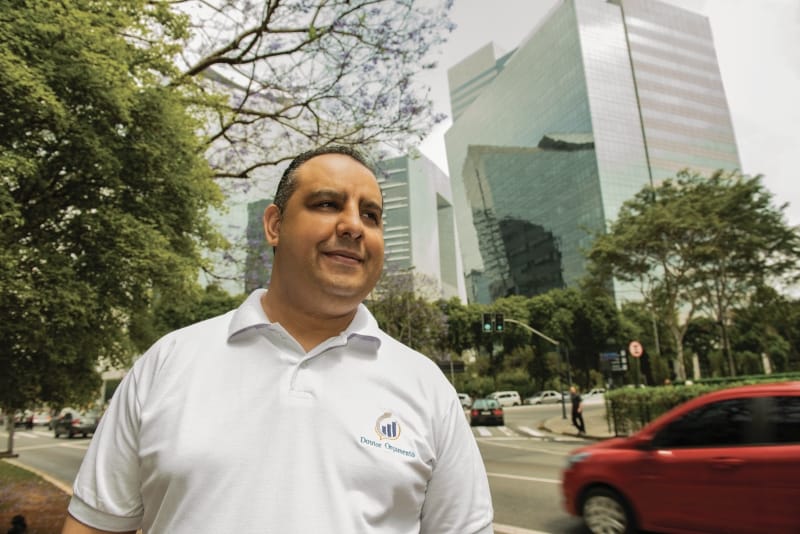A well-crafted strategy combined with clear resources and objectives can act as the backbone of a rising or developing enterprise. In this context, (good) financial health is an objective to be pursued and planning in this area is essential. No matter how obvious these statements are, there are still many entrepreneurs who put their business at risk for lack of awareness on this issue.
A well-crafted strategy combined with clear resources and objectives can act as the backbone of a rising or developing enterprise. In this context, (good) financial health is an objective to be pursued, and planning in this area is essential. No matter how obvious these statements are, there are still many entrepreneurs who put their business at risk for lack of awareness on this issue.
Among several factors, one seems to be at the top of the list of reasons why this is happening. According to Elvil Fernandes, financial educator, it is the behavior of those who are heading the company. As he points out, diagnosing the behavior helps to change it. This is part of his job, helping his clients understand that the answers are right there with them, and thereby “helping them cross the bridge and shift the paradigm,” he says.
Fernandes gives a real example in regard to a client—not a businessman, but a doctor— who sought him out complaining that he “felt irresponsible because although earning a high salary he did not get to accumulate reserve or equity.” He explains step by step how he unraveled the problem. “It doesn’t matter whether it’s an individual or a company, a start-up,” he says.
First, he found all the expenses and then proceeded to map the behavior of the professional in relation to finances. After the diagnosis, all his desires, dreams and goals were listed, later categorized into short-term (12 months), medium-term (5 years) and long-term (over 5 years) goals. The next step was to budget the whole list. “When we do this, we begin to rationalize, it is no longer a dream but it becomes an objective, a goal,” explains Fernandes, who has more than 20 years of experience in strategic planning. “First of all, the impression was that it would be necessary to increase the workload, but we adjusted the lifestyle so that he could achieve financial independence at 60, which was his dream.”

To adjust his finance, Fernandes produced a budget for the doctor; how much he earned, the price of the professional activity, and each item he bought. “I don’t make people into misers,” Fernandes says, jokingly. “I help the person [or company] to understand financial life.” For him, understanding how money is spent is the key to effective behavioural change. This, according to Fernandes, is more effective than a handful of spreadsheets.
In the case of companies, he says, it’s the same, only that “the company is a living organism made up of people”. And the dream, the desire, needs to be rationalized. According to him, a very common situation is the loss of focus, which can be either because the owners of the company are paying more attention to the operation than to the strategy or because they, in fact, are involved in more than one enterprise. In one of the start-ups he worked with, the manager came to him with financial problems and the problem soon became clear: This client was not paying attention to his business and that feeling had influenced the employees. The solution, in this case, was to resize the efforts, close one of the units, and thus be able to grow in a more sustainable way.
Anxiety and education
Based on his experience, Fernandes noticed a common trait in his clients: anxiety. “They want everything now, they want everything immediately!” he says. This problem, which affects society to different extents, is aggravated by the oppression of the screens present in every moment of our lives and can become a disease to be treated with a surgery. That is more than a sign of our times, it has become a disease.
To get an idea, anxiety disorders affects around 9 out of every 100 people, according to the latest survey released by the World Health Organization (WHO). When it comes to material gains and money, this evil complicates the task of controlling the budget spreadsheets even more.
Psychologist Liliana Prado Lima draws attention to some risks caused by this emotional state. If the entrepreneur feels consumed by worry, he may be “distracted”. The situation becomes worse if he or she really suffers from anxiety: “One of the characteristics of those who have this disorder is the feeling that everything is going to go wrong,” explains Lima. This way, simple tasks — such as changing plans — can become herculean efforts. This happens because fear becomes a constant and the patient tends to withdraw, he does not take risks, expose himself, or make a decision. In practice, it is not even feasible to draw up plans. “We can see the loss of attention and what happens is that the person understands that he has lost interest,” she adds.

However, if anxious use fear to their advantage, they can enjoy almost flawless planning. People who fear the future tend to have something called “avoidance” behaviour, which seeks to avoid confrontation and risk. At the same time, the fear of losing money can be used to exhaust the possibilities of this happening: “One of the best strategies for planning is to see the whole process and, by predicting each and everything that can go wrong, anxious people can be on the path to impeccable planning,” says Lima.
Liao Yu Chie talks calmly, with pauses—far from any sign of anxiety—and warns that it is impossible for the entrepreneur to predict the market scenario, which makes planning just one more tool to guide their actions. The problem, in his point of view, is that financial planning is often neglected because people don’t like numbers and spreadsheets, however, it is an element that represents business consistence to investors. He can give his own company as an example: By showing his detailed business plan, with costs, market sizing and customer needs and possibilities, he got investors to start his financial education consultancy.
“You should understand spreadsheets”, Chie says. According to him, entrepreneurs have to “know what each premise of the business is and how they relate to each other,” even understanding that scenarios change rapidly and forecasts tend not to match. The way out is to review the calculations from time to time. “In practice, this becomes the budget process of the company,” says the professor, who recommends reviews every six months.
Based on the barriers faced by entrepreneurs, for Chie, is the low level of Brazilian education: “We are among the worst in the world in financial education.” He refers to a study published in 2017 by the OECD (Organization for Economic Co-operation and Development) with a survey carried out in 15 countries. Brazil trailed behind with the lowest average, as 53% of 15-year-olds did not reach the basic level of knowledge. Besides, the average of the OECD countries is 22%, a number that is also unsatisfactory. Financial education is not a school subject, but students are introduced to various concepts of financial mathematics and should be able to solve problems and understand the scenarios.
Perhaps this characteristic also helps explain why entrepreneurship remains an answer to necessity much more often than a matter of choice.
By Karina Yamamoto
Language Quality Assurance Reviewer
Albina Retyunskikh
